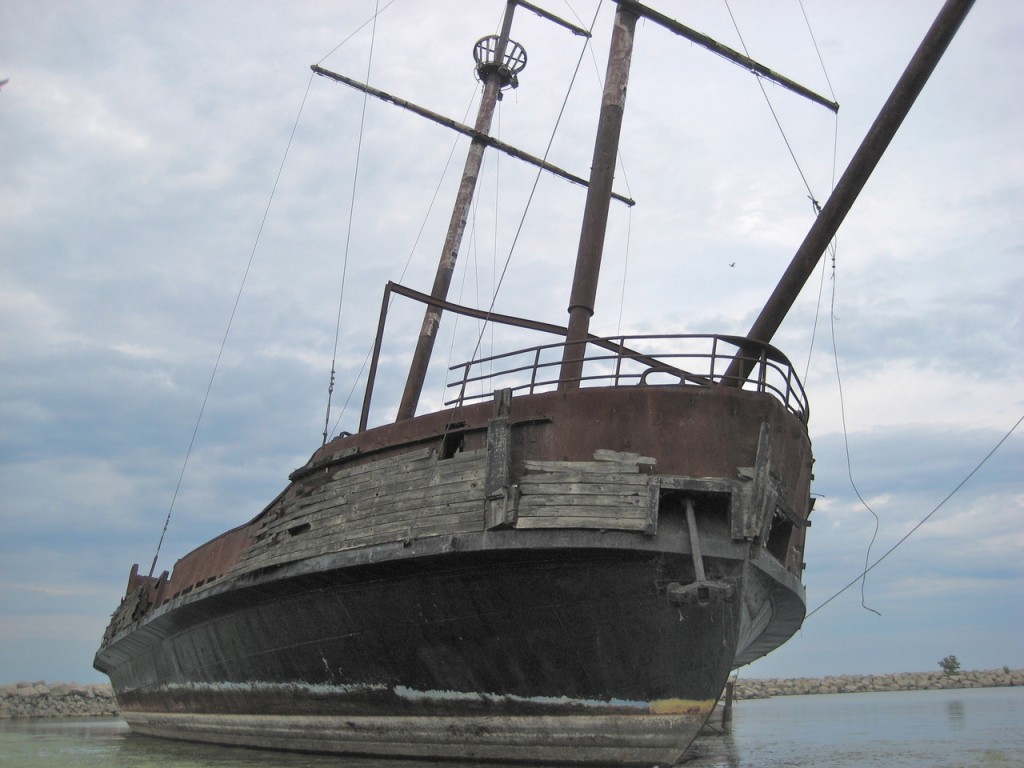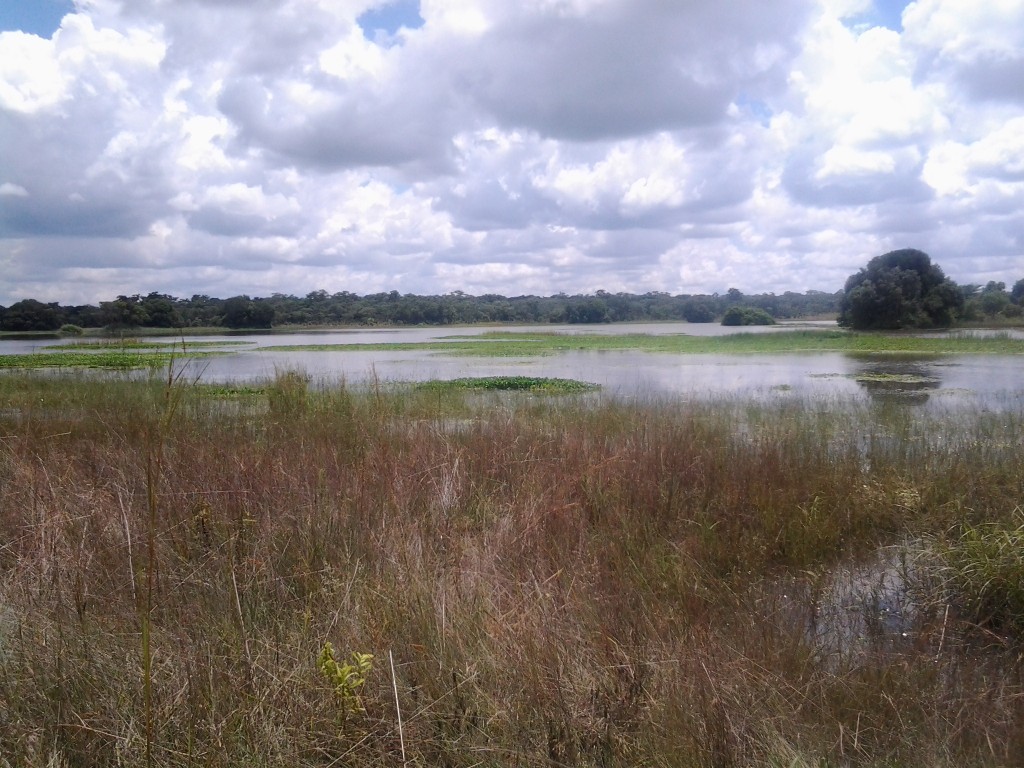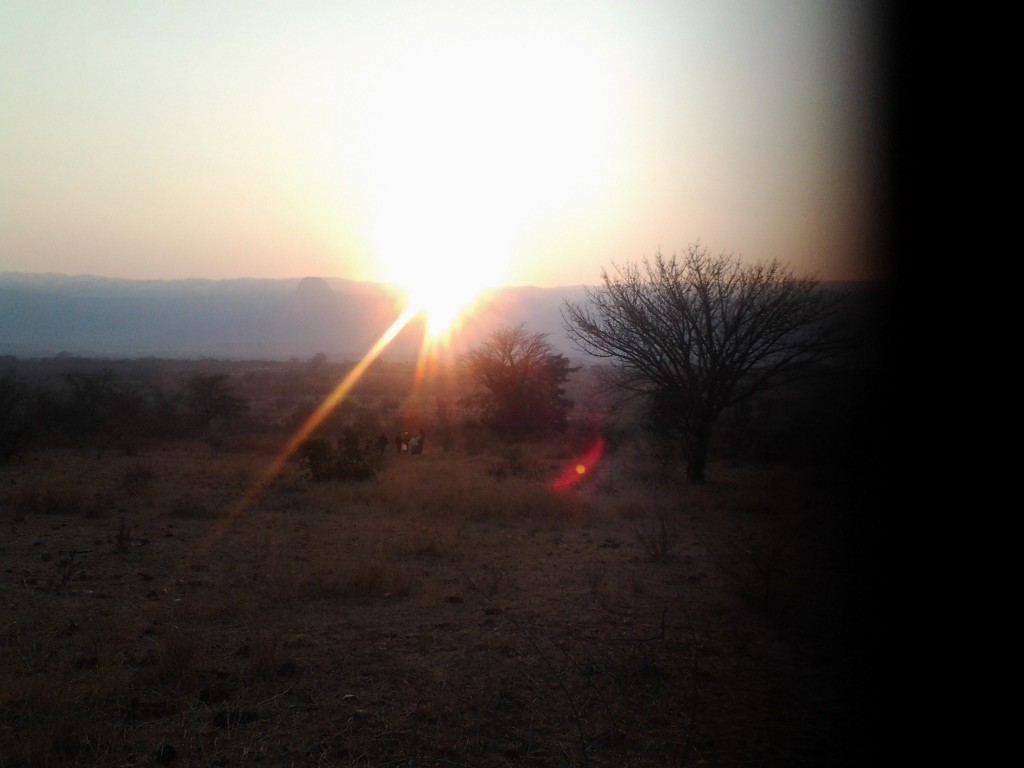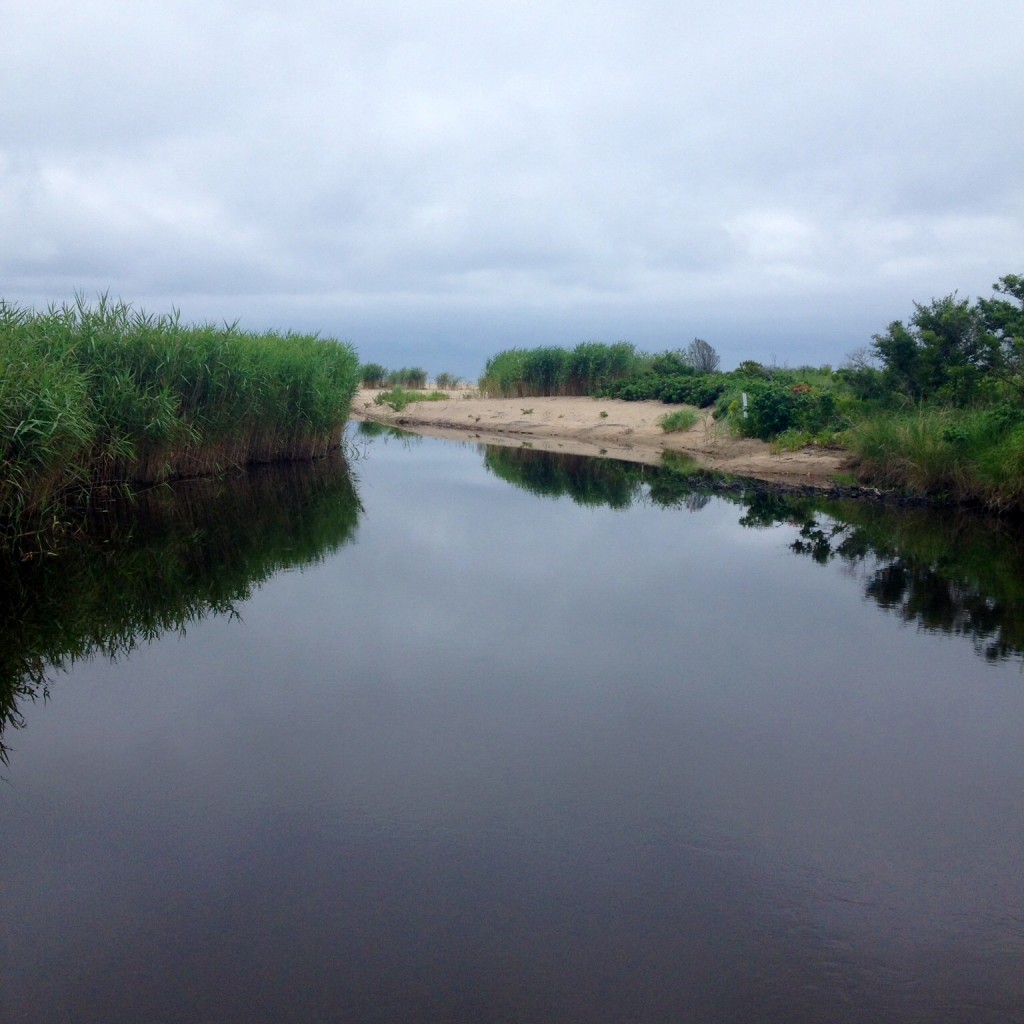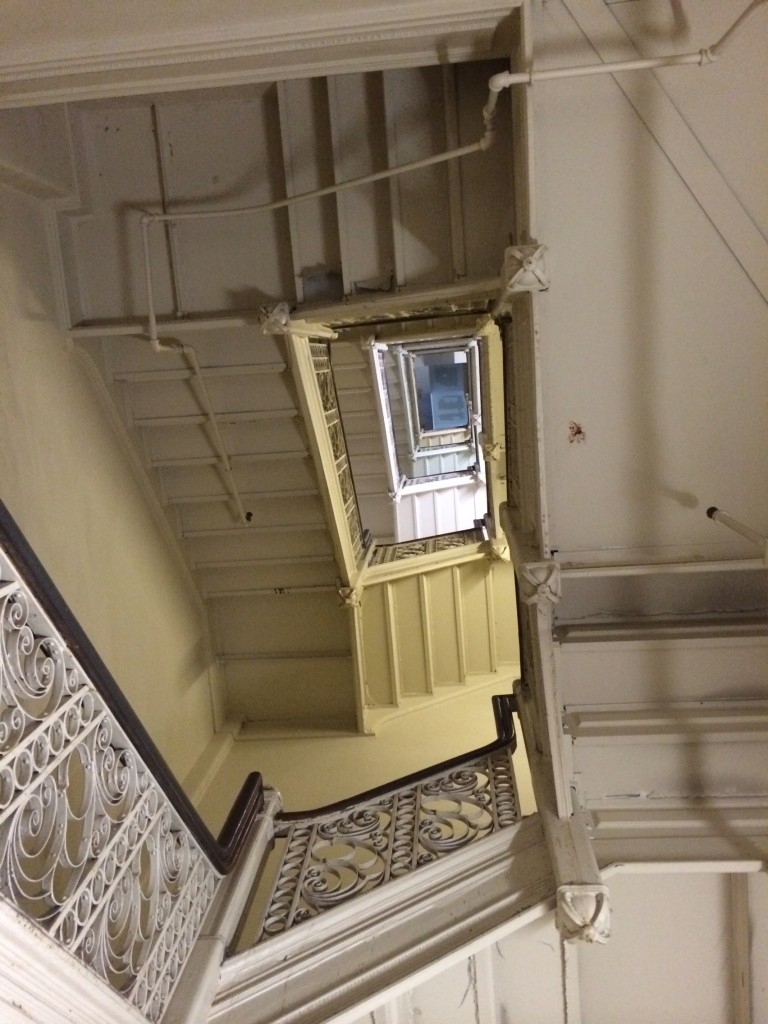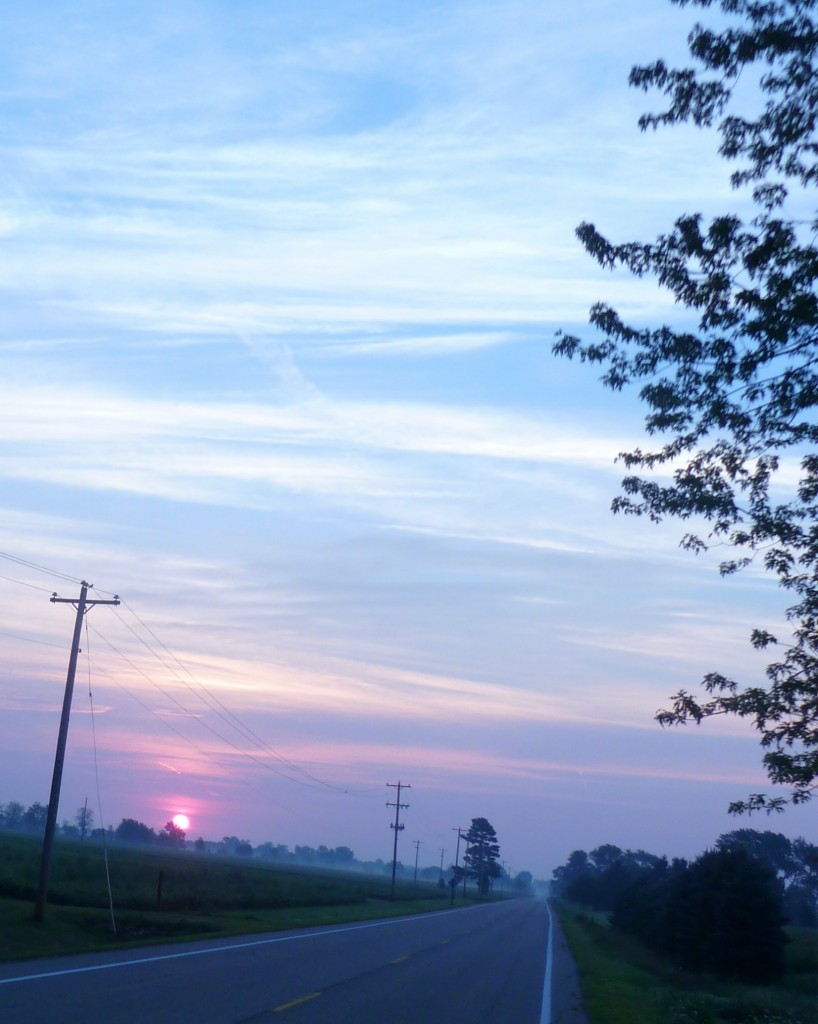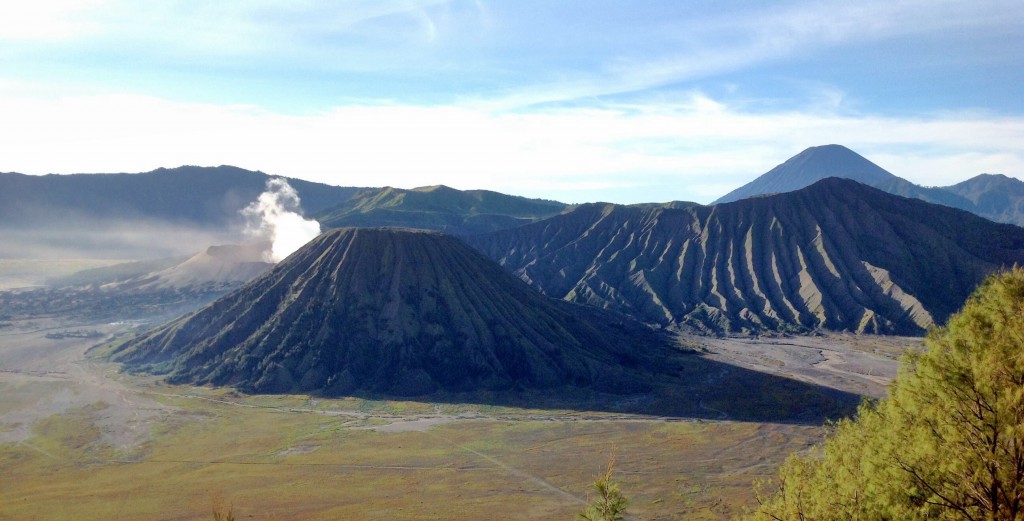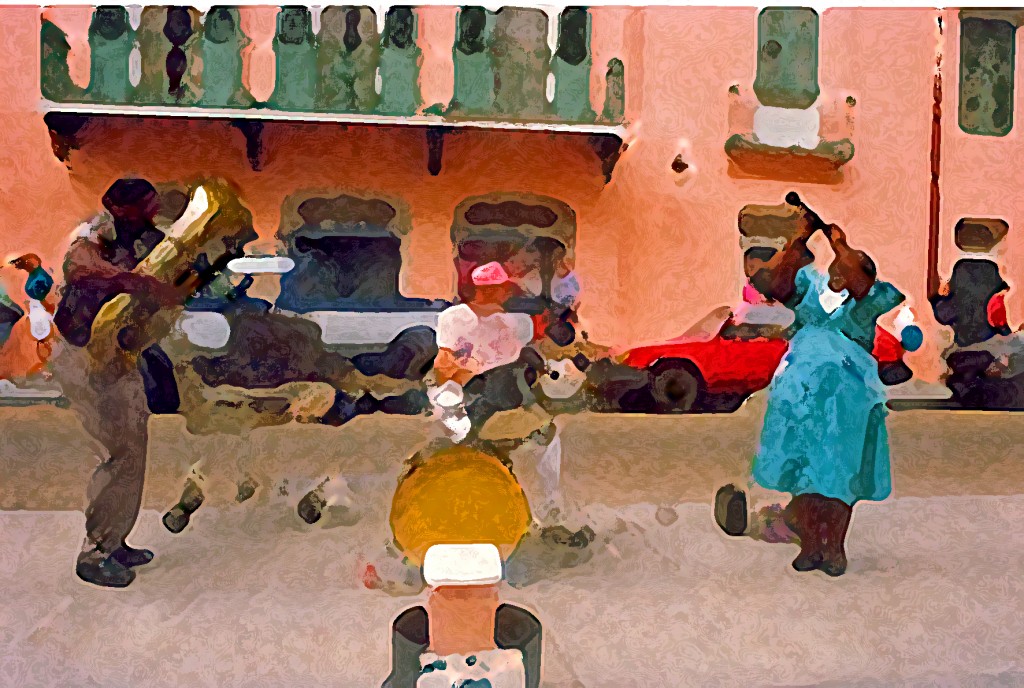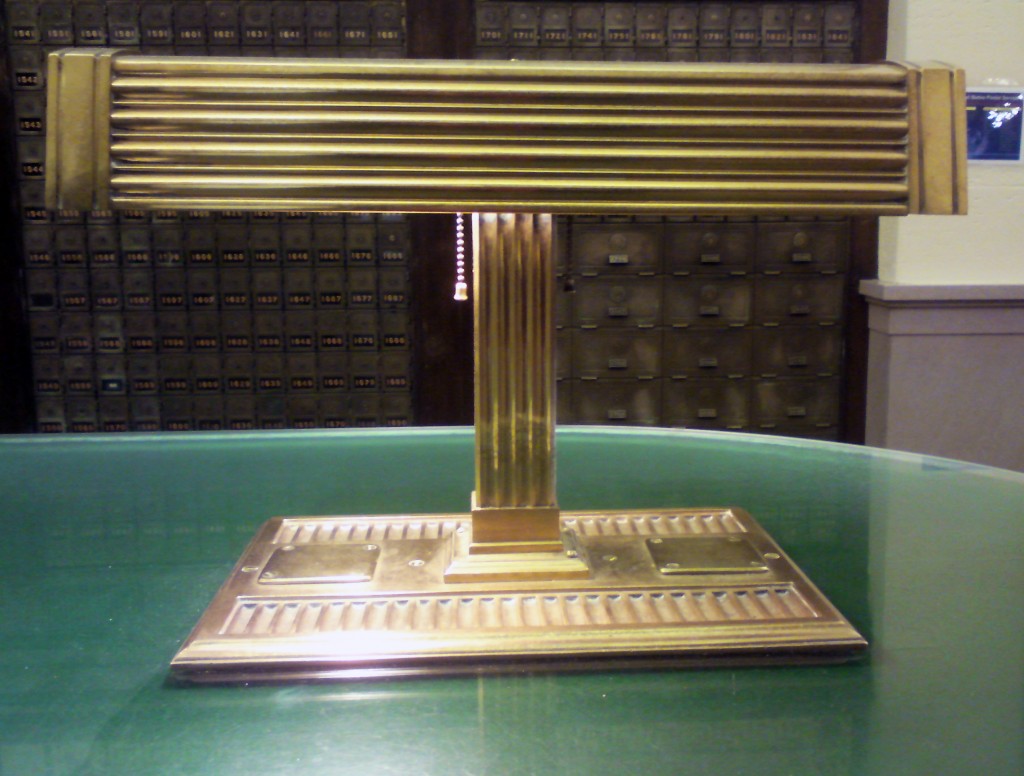
Not long ago I found a stack of greeting cards on a table, one of several that stand in the main post office in Durham, North Carolina. Each table is made of green glass, sturdy and scratched, and is fitted with two brass lamps like the one shown here. I love these lamps, which are so friendly and yet so elegant, and I love the tables, which are at such a height that I can rest my elbows on them, stare at the banks of post-office boxes, and commence with whatever business I have. The greeting cards were nothing special—mass-produced, with bland watercolors of flowers on them in several patterns—but they were there.
It’s easy to not write a letter, even when the cards are left out for you, just by their presence making news for you to write about. Even when the lamp beckons, as if it’s saying to anyone, You, too, might stand and write here, turning your head, shifting from one foot to the other; carefully address the envelope, checking each numeral; affix a stamp and walk toward the counter, drop the new letter into the brass mail slot, hearing it flap back on its hinge, and go out the revolving wooden door, feeling virtuous and satisfied, feeling the slow travel of the letter—quick, really, so quickly it will reach your loved one—through the workings of the postal system, living in the mystery and anticipation of news not yet delivered but on its way.
On my desk at home I have put a note for myself: ALWAYS WRITE BACK. I haven’t written back always, which is the reason for the note, and which is one of many reasons for the affection I feel for the post office: its very architecture supports me in the effort. These tables are not going anywhere—they’re bolted to the floor. These lamps are, to borrow a phrase from Mary Wells, sticking to the table like a stamp to a letter. And each one’s little halo of light waits for me to slide a card or sheet of notepaper into its circle, take out my pen, and begin.
Anna Lena Phillips’s projects include A Pocket Book of Forms, a travel-sized guide to poetic forms, and SEND WORD, a pop-up letter writing station. She teaches at UNC Wilmington and is editor of Ecotone.
